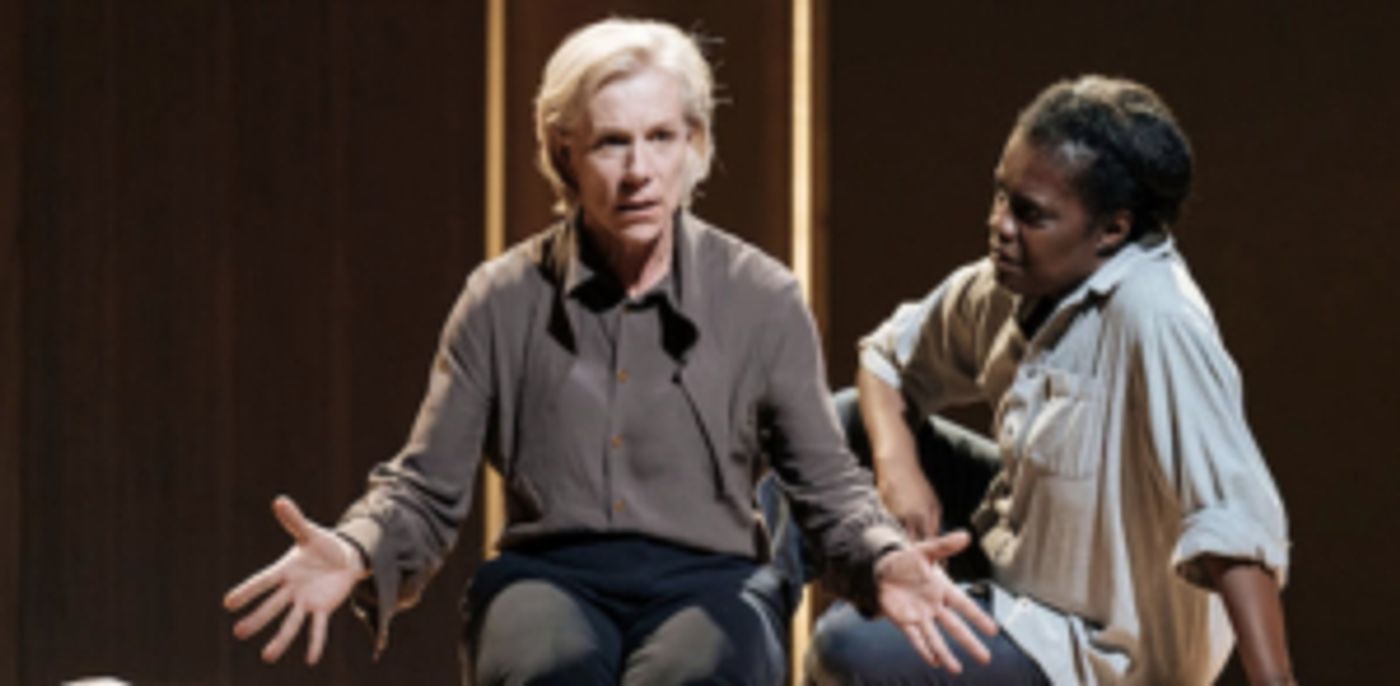Review Roundup: What Did Critics Think of THE DOCTOR?

The Doctor is Robert Icke's final production in his role as Associate Director of the Almeida as he departs to pursue freelance projects.
Juliet Stevenson and Ria Zmitrowicz star alongside Oliver Alvin-Wilson, Nathalie Armin, Paul Higgins, Mariah Louca, Pamela Nomvete, Daniel Rabin, Joy Richardson, Kirsty Rider and Naomi Wirthner.
Icke's work at the Almeida includes adapting and directing The Wild Duck, Mary Stuart (also West End), Uncle Vanya, Oresteia (also West End) and 1984 (co-created with Duncan MacMillan, also Broadway, West End, national and international tours). As director, his other Almeida productions include Hamlet (also West End and BBC2), The Fever and Mr Burns. Elsewhere, his recent work includes The Crucible (Theater Basel), Oedipus (Toneelgroep Amsterdam and runs at Edinburgh International Festival this summer) and Orestie (Schauspiel Stuttgart, awarded the Kurt-Hübner-Regiepreis). His future work includes new productions at Schauspiel Stuttgart and with Toneelgroep Amsterdam. He has won the UK Theatre Award, the Critics' Circle Award and the Evening Standard Theatre Award for Best Director, and is the youngest ever winner of the Olivier Award for Best Director.
Let's see what the critics had to say...
Marianka Swain, BroadwayWorld: Some of this debating is a little dry in theatrical terms, particularly in an overlong first half that could use a deftly wielded surgeon's knife. But when the conflicts come to a head, it's riveting. Additionally, Icke cunningly casts against gender and racial identifiers. We don't discover until partway through the play that, for example, a white actor is actually representing a black character and vice versa, or that a woman is playing a man.
Aleks Sierz, The Arts Desk: Stevenson, who is on stage for the entire show, including the interval, makes Ruth a monumental and mesmerizing character. For all her faults (she is arrogant, pedantic, sharp, sarcastic and a bit of a snob) she is totally convincing as an inspiring clinician, dominating the play with an effortless authority, stamping her will on all the opening scenes. Gradually, however, as events crowd in on her, her vulnerability begins to appear: at first it's just a change in her eyes, then an altered glance and finally a visible weight on her shoulders. As the crisis deepens, her anger is scalding hot and she radiates raw loss. By the end she is haggard, death-like.
Nick Curtis, Evening Standard: At times, the opposition of different belief systems and the language of grievance are laid on with a heavy hand, and some of the lesser roles are clumsily expressed. But Icke explores with remorseless precision how an action or a word can today be quickly stripped of intention and twisted into something else entirely. He also handles Wolff's home life in a way at first puzzling but then wrenchingly sad and beautiful.
Michael Billington, The Guardian: In fact, everything about Icke's production feels right. Hildegard Bechtler's design has a clinical simplicity, and the cast, although not identified by character, inhabit their roles perfectly. Paul Higgins as the impassioned priest, Naomi Wirthner as Ruth's most implacable opponent, Pamela Nomvete as her fiercest champion and Ria Zmitrowicz as her betrayed friend all perform with great skill.
Paul Taylor, The Independent: As the panel frisk every aspect of her identity for possibly incriminating evidence, Stevenson's face (blown up on two screens in live close-up) is the picture of contemptuous dismay. Her ravaged nervous system underscored by boisterous drumming, she races frantic, wall-bashing circuits of Hildegard Bechtler's blond wood, calculatedly anonymous conference room. Ria Zmitrowicz is excellent as the young transgender teenager who discovers that Ruth's house is the last place in which to take refuge.
Alice Saville, Time Out New York: Full of smouldering frustration and just-visible terror, Stevenson's masterful central performance does a lot of heavy lifting here. Because although Icke throws out a lot of smoke around the ideas he's exploring, they're not thought through with the white-hot intensity they deserve. Apart from Stevenson, each actor is deliberately cast outside their identity; women play men, black actors play white and vice versa. And yes, this could be taken as a serious interrogation of the way that identities are socially constructed, but there's also a flippancy to it.
Connor Campbell, The Up Coming: Through careful casting and uncomfortable plot manipulation, Icke attempts to strip away the visual signifiers of certain elements of identity, for example race and gender, while also placing an emphasis on those aspects that often remain hidden, like sexuality and religion. Layer on top indicators of profession - here the almost sacred vestment of the doctor's coat, or the white hyphen of a dog collar - and you are presented with a checklist of all kinds of groups people are divided, and divide themselves, into.
Photo credit: Manuel Harlan
- To read more reviews, click here!
- Discuss the show on the BroadwayWorld Forum
Reader Reviews
Videos

